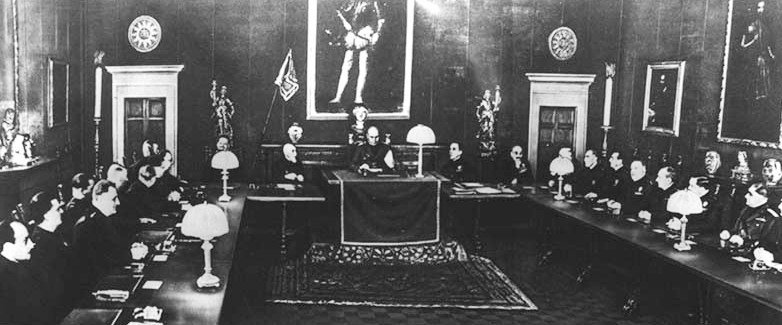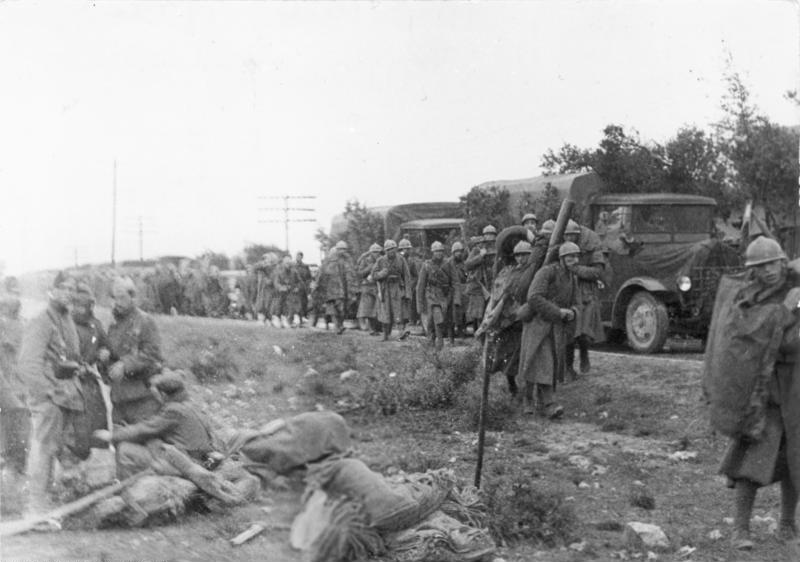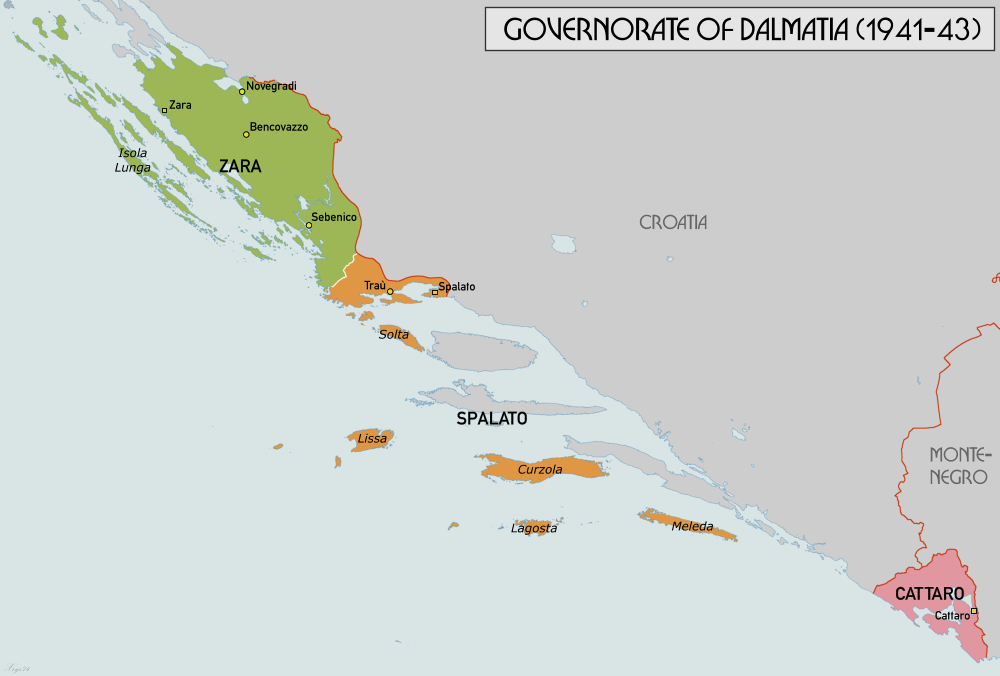|
Giuseppe Bastianini
Giuseppe Bastianini (8 March 1899 – 17 December 1961) was an Italian politician and diplomat. Initially associated with the hard-line elements of the fascist movements he later became a member of the dissident tendency. Early years Bastianini was born in Perugia. At an early age he became a local fascist leader in Umbria where he garnered a reputation as a member of the hard-line ''intransigenti'' wing of the movement. Following the seizure of power Bastianini was appointed head of the ''Fasci Italiani all'Estero'', a movement aimed at co-ordinating the activities of Italian fascists not currently living in Italy. He called on members to seek to diffuse proper Italian fascist ideas wherever they were living. This group gained a considerable following amongst Italian expatriates in the mid-1920s. Indeed, in 1925 he submitted a report to the Fascist Grand Council claiming to have groups in 40 countries worldwide. Bastianini's activities brought him into conflict with Italian ... [...More Info...] [...Related Items...] OR: [Wikipedia] [Google] [Baidu] |
Chamber Of Deputies (Kingdom Of Italy)
The Chamber of Deputies of the Kingdom of Italy ( it, Camera dei deputati del Regno d'Italia) was the main legislative body of the Kingdom of Italy descended from the lower house of the Kingdom of Sardinia, but supplemented with deputies from territories captured during the Second Italian War of Independence and the Expedition of the Thousand. Along with the Senate of the Kingdom of Italy, it formed the Parliament of the Kingdom of Italy from 1861 until 1939. History Its electors were initially selected by wealth and then by literacy, before the introduction of universal suffrage for all men over 21 in 1919. It was elected using a system that was based on both majorities and proportionality. It was based in the Palazzo Carignano in Turin (1861–1865), the Palazzo Vecchio in Florence Florence ( ; it, Firenze ) is a city in Central Italy and the capital city of the Tuscany region. It is the most populated city in Tuscany, with 383,083 inhabitants in 2016, and over 1,5 ... [...More Info...] [...Related Items...] OR: [Wikipedia] [Google] [Baidu] |
Fascist Grand Council
The Grand Council of Fascism (, also translated "Fascist Grand Council") was the main body of Mussolini's Fascist government in Italy, that held and applied great power to control the institutions of government. It was created as a body of the National Fascist Party in 1922, and became a state body on 9 December 1928. The council usually met at the Palazzo Venezia, Rome, which was also the seat of the head of the Italian government. The Council became extinct following a series of events in 1943, in which Benito Mussolini was voted out of the Prime Ministry of Italy. Powers of the Council Essentially, the council held these powers: *The power to elect the Fascist Party deputies, the nomination for the Party Secretary and other party leaders, the approval of the party statutes and the power regarding the party's policy. *The power to elect the Crown's line of succession including the choice of the heir to the throne, the right of the crown, the power to choose possible succes ... [...More Info...] [...Related Items...] OR: [Wikipedia] [Google] [Baidu] |
Split, Croatia
)'' , settlement_type = City , anthem = '' Marjane, Marjane'' , image_skyline = , imagesize = 267px , image_caption = Top: Nighttime view of Split from Mosor; 2nd row: Cathedral of Saint Domnius; City center of Split; 3rd row: View of the city from Marjan Hill; Night in Poljička Street; Bottom: ''Riva'' waterfront , image_flag = Flag of the City of Split.svg , flag_size = 150px , flag_link = Flag of Split , image_seal = , seal_size = , image_shield = Coat of arms of Split.svg , shield_size = 90px , shield_link = Coat of arms of Split , image_map = , mapsize = , map_caption = Map of the Split city area. , image_map1 = , mapsize1 = , map_caption1 = , image_dot_map = , dot_mapsize ... [...More Info...] [...Related Items...] OR: [Wikipedia] [Google] [Baidu] |
Mario Roatta
Mario Roatta (2 February 1887 – 7 January 1968) was an Italian general. After serving in World War I he rose to command the Corpo Truppe Volontarie which assisted Francisco Franco's force during the Spanish Civil War. He was the Deputy Chief of Staff of the Italian Army from October 1939 to March 1941 and from March 1941 to January 1942 its Chief of Staff and helped in preparing for the invasion of Yugoslavia. He is best known for his role as the commander of the Italian Second Army in its repression against civilians, in the Slovene- and Croatian-inhabited areas of the Italian- occupied Yugoslavia during World War II. He constructed a policy in which he attempted to eliminate the Yugoslav Partisans, helped manage relations with the authorities of the puppet Independent State of Croatia, and "greatly advanced and systematized" collaboration with the Chetniks. As a "manifesto for repression in the Yugoslav territories", Roatta issued Circular 3C which urged "ethnic clearance" ... [...More Info...] [...Related Items...] OR: [Wikipedia] [Google] [Baidu] |
Quirino Armellini
Quirino Armellini (31 January 1889 in Legnaro – 13 January 1975 in Rome) was an Italian military officer, who served as a general in both the Royal Italian Army and the Italian Army. Biography Armellini was commissioned into the Royal Italian Army as a second lieutenant in 1908, after graduating from the Military Academy of Modena, and participated in the Italo-Turkish War and the World War I. After serving under the command of Pietro Badoglio in the Second Italo-Ethiopian War against the Ethiopian Empire, Armellini was appointed commander of the Italian African Police (PAI) in the Italian East Africa (AOI). From February to August 1942, during the World War II in Yugoslavia, Armellini was appointed commander of the XVIII Army Corps in the Italian-occupied Dalmatia.After that, he was transferred to Southern Italy at the head of the IX Army Corps to defend the South-eastern coast. After the fall of the Fascist regime in Italy on 25 July 1943, King Victor Emmanuel III a ... [...More Info...] [...Related Items...] OR: [Wikipedia] [Google] [Baidu] |
Italian Language
Italian (''italiano'' or ) is a Romance language of the Indo-European language family that evolved from the Vulgar Latin of the Roman Empire. Together with Sardinian, Italian is the least divergent language from Latin. Spoken by about 85 million people (2022), Italian is an official language in Italy, Switzerland ( Ticino and the Grisons), San Marino, and Vatican City. It has an official minority status in western Istria (Croatia and Slovenia). Italian is also spoken by large immigrant and expatriate communities in the Americas and Australia.Ethnologue report for language code:ita (Italy) – Gordon, Raymond G., Jr. (ed.), 2005. Ethnologue: Languages of the World, Fifteenth edition. Dallas, Tex.: SIL International. Online version ... [...More Info...] [...Related Items...] OR: [Wikipedia] [Google] [Baidu] |
Croatian Language
Croatian (; ' ) is the standardized variety of the Serbo-Croatian pluricentric language used by Croats, principally in Croatia, Bosnia and Herzegovina, the Serbian province of Vojvodina, and other neighboring countries. It is the official and literary standard of Croatia and one of the official languages of the European Union. Croatian is also one of the official languages of Bosnia and Herzegovina and a recognized minority language in Serbia and neighboring countries. Standard Croatian is based on the most widespread dialect of Serbo-Croatian, Shtokavian, more specifically on Eastern Herzegovinian, which is also the basis of Standard Serbian, Bosnian, and Montenegrin. In the mid-18th century, the first attempts to provide a Croatian literary standard began on the basis of the Neo-Shtokavian dialect that served as a supraregional ''lingua franca'' pushing back regional Chakavian, Kajkavian, and Shtokavian vernaculars. The decisive role was played by Croatian Vukovi ... [...More Info...] [...Related Items...] OR: [Wikipedia] [Google] [Baidu] |
Yugoslavia
Yugoslavia (; sh-Latn-Cyrl, separator=" / ", Jugoslavija, Југославија ; sl, Jugoslavija ; mk, Југославија ;; rup, Iugoslavia; hu, Jugoszlávia; rue, label= Pannonian Rusyn, Югославия, translit=Juhoslavija; sk, Juhoslávia; ro, Iugoslavia; cs, Jugoslávie; it, Iugoslavia; tr, Yugoslavya; bg, Югославия, Yugoslaviya ) was a country in Southeast Europe and Central Europe for most of the 20th century. It came into existence after World War I in 1918 under the name of the '' Kingdom of Serbs, Croats and Slovenes'' by the merger of the provisional State of Slovenes, Croats and Serbs (which was formed from territories of the former Austria-Hungary) with the Kingdom of Serbia, and constituted the first union of the South Slavic people as a sovereign state, following centuries in which the region had been part of the Ottoman Empire and Austria-Hungary. Peter I of Serbia was its first sovereign. The kingdom gained international ... [...More Info...] [...Related Items...] OR: [Wikipedia] [Google] [Baidu] |
Governor Of Dalmatia
The Governorate of Dalmatia ( it, Governatorato di Dalmazia) was a territory divided into three provinces of Italy during the Italian Kingdom and Italian Empire epoch. It was created later as an entity in April 1941 at the start of World War II in Yugoslavia, by uniting the existing Province of Zara together with occupied Yugoslav territory annexed by Italy after the invasion of Yugoslavia by the Axis powers and the signing of the Rome Treaties. Background Dalmatia was a strategic region during World War I that both Italy and Serbia intended to seize from Austria-Hungary. Italy joined the Triple Entente Allies in 1915 upon agreeing to the London Pact that guaranteed Italy the right to annex a large portion of Dalmatia in exchange for Italy's participation on the Allied side. From 5 to 6 November 1918, Italian forces were reported to have reached Lissa, Lagosta, Sebenico, and other localities on the Dalmatian coast. At the end of hostilities in November 1918, the Italian m ... [...More Info...] [...Related Items...] OR: [Wikipedia] [Google] [Baidu] |
Roman Catholic
Roman or Romans most often refers to: *Rome, the capital city of Italy *Ancient Rome, Roman civilization from 8th century BC to 5th century AD *Roman people, the people of ancient Rome *''Epistle to the Romans'', shortened to ''Romans'', a letter in the New Testament of the Christian Bible Roman or Romans may also refer to: Arts and entertainment Music *Romans (band), a Japanese pop group * ''Roman'' (album), by Sound Horizon, 2006 * ''Roman'' (EP), by Teen Top, 2011 *"Roman (My Dear Boy)", a 2004 single by Morning Musume Film and television *Film Roman, an American animation studio * ''Roman'' (film), a 2006 American suspense-horror film * ''Romans'' (2013 film), an Indian Malayalam comedy film * ''Romans'' (2017 film), a British drama film * ''The Romans'' (''Doctor Who''), a serial in British TV series People * Roman (given name), a given name, including a list of people and fictional characters * Roman (surname), including a list of people named Roman or Romans *Ῥωμα� ... [...More Info...] [...Related Items...] OR: [Wikipedia] [Google] [Baidu] |
Second World War
World War II or the Second World War, often abbreviated as WWII or WW2, was a world war that lasted from 1939 to 1945. It involved the World War II by country, vast majority of the world's countries—including all of the great powers—forming two opposing military alliances: the Allies of World War II, Allies and the Axis powers. World War II was a total war that directly involved more than 100 million Military personnel, personnel from more than 30 countries. The major participants in the war threw their entire economic, industrial, and scientific capabilities behind the war effort, blurring the distinction between civilian and military resources. Air warfare of World War II, Aircraft played a major role in the conflict, enabling the strategic bombing of population centres and deploying the Atomic bombings of Hiroshima and Nagasaki, only two nuclear weapons ever used in war. World War II was by far the List of wars by death toll, deadliest conflict in hu ... [...More Info...] [...Related Items...] OR: [Wikipedia] [Google] [Baidu] |
Italian Ambassador To Poland
Italian(s) may refer to: * Anything of, from, or related to the people of Italy over the centuries ** Italians, an ethnic group or simply a citizen of the Italian Republic or Italian Kingdom ** Italian language, a Romance language *** Regional Italian, regional variants of the Italian language ** Languages of Italy, languages and dialects spoken in Italy ** Italian culture, cultural features of Italy ** Italian cuisine, traditional foods ** Folklore of Italy, the folklore and urban legends of Italy ** Mythology of Italy, traditional religion and beliefs Other uses * Italian dressing, a vinaigrette-type salad dressing or marinade * Italian or Italian-A, alternative names for the Ping-Pong virus, an extinct computer virus See also * * * Italia (other) * Italic (other) * Italo (other) * The Italian (other) * Italian people (other) Italian people may refer to: * in terms of ethnicity: all ethnic Italians, in and outside of Italy * in ... [...More Info...] [...Related Items...] OR: [Wikipedia] [Google] [Baidu] |

.jpg)




